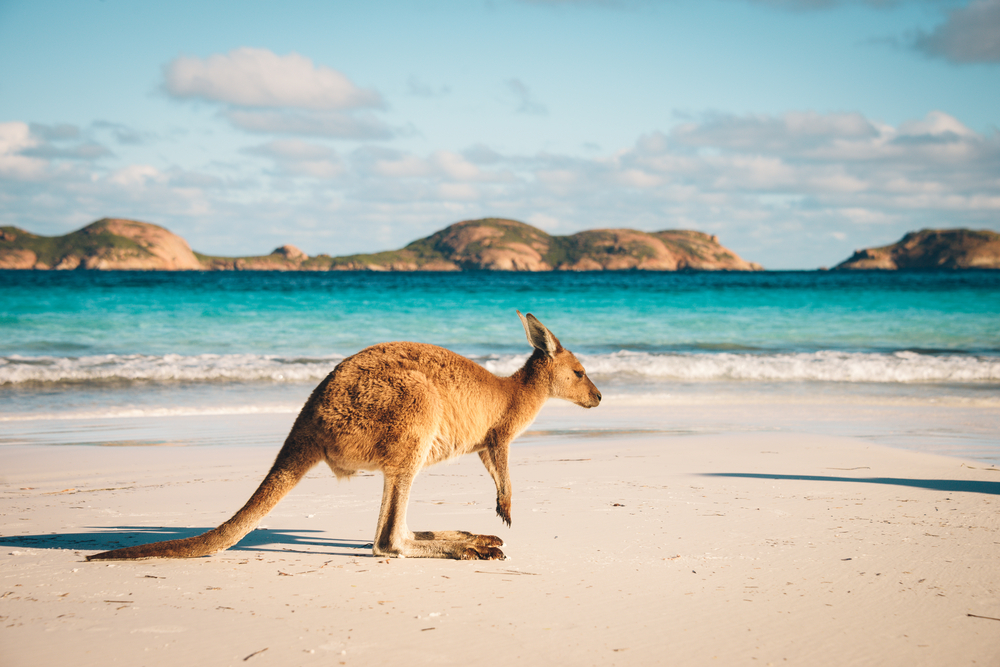
With our borders closed and senior government officials fanning the flames of any hopes to open them by the end of this year, here is a system that they should take a good look at and implement a similar way to open Australian borders.
The so-called ‘vaccine passport’ and a traffic light system would guide travel restrictions and quarantine requirements.
Australia and New Zealand are lining up for a slot on the UK’s so-called ‘Green List’ for approval travel as part of a plan to gradually reopen the UK’s borders, according to the head of London’s Heathrow airport.
But the US remains in pole position, and progress on Covid-19 vaccinations in the two countries could allow it to be included on list of countries from which people will be able to travel to Britain without quarantine, Heathrow Chief Executive Officer John Holland-Kaye said in an interview Thursday.
While it would not necessarily be reciprocal, a unilateral UK reopening could allow Americans to fly into the country for business and leisure trips, Holland-Kaye said. In this scenario, Brits seeking to go to the US would have to wait for the Biden administration to reciprocate.
As with the US, restrictions in Australia and New Zealand would limit any significant bump-up in air travel until the measures were reciprocal. Both countries are currently closed to all except residents and citizens.
Other locations also likely to make the Green List include Singapore, Hong Kong, Israel and Iceland, plus some Caribbean destinations, the CEO said.
Mainland Spain and Greece, both among the most popular holiday destinations for Britons, might not be green-lighted until June and July respectively as the European Union vaccination program picks up the pace and the pandemic recedes, Holland-Kaye suggested.
Heathrow has been in constant communication with the government over the impact of the pandemic as well as plans for a resumption in travel. It is currently illegal to travel overseas for holidays, under British law.
Prime Minister Boris Johnson’s officials are studying the latest data on infection rates in other countries with a view to adding those with low levels of Covid-19 to the list of approved destinations for foreign travel.
The details are expected to be announced on Friday, and to take effect from May 17, according to officials.
Initially, only a small number of nations and territories are likely to be approved as holiday destinations, but the list will be revised every three weeks to take account of the changing pandemic situation.
Destinations that could be placed on the green list as rules are eased in the weeks ahead include Malta, Iceland, Israel, the Canary Islands and Gibraltar.
As the UK eases its pandemic restrictions with a vaccine rollout program now having reached two-thirds of all adults, ministers are turning their attention to how to allow foreign travel to resume with the use of Covid certification, known as vaccine passports.
Under the new “traffic light” system, countries judged to be low risk will be on the green list, with no requirement for travellers to self-isolate on their arrival to the UK.
Destinations seen as having a moderate risk will be on an “amber” list, requiring passengers entering Britain to self-isolate for 10 days, while those from high-risk countries on the “red” list will have to quarantine in a hotel for the same period.
Still, pre-departure and post-arrival testing will be mandatory for all passengers, something airlines say is too costly and likely to put some people off travelling even to green-list countries.
Speaking earlier this week, Johnson played down hopes of a big-bang reopening of foreign travel, saying the government will remain “cautious.”
“We do want to do some opening up on May 17, but I don’t think that the people of this country want to see an influx of disease from anywhere else,” the Prime Minister said.
“I certainly don’t, and we have got to be very, very tough, and we have got to be as cautious as we can, whilst we continue to open up.”



 share
share





















































